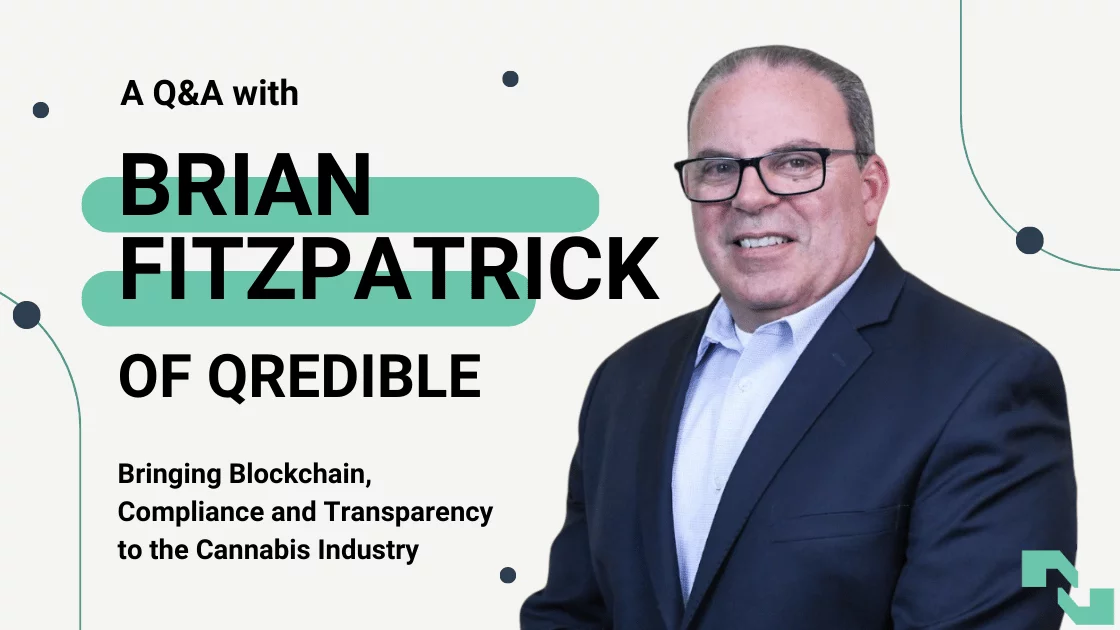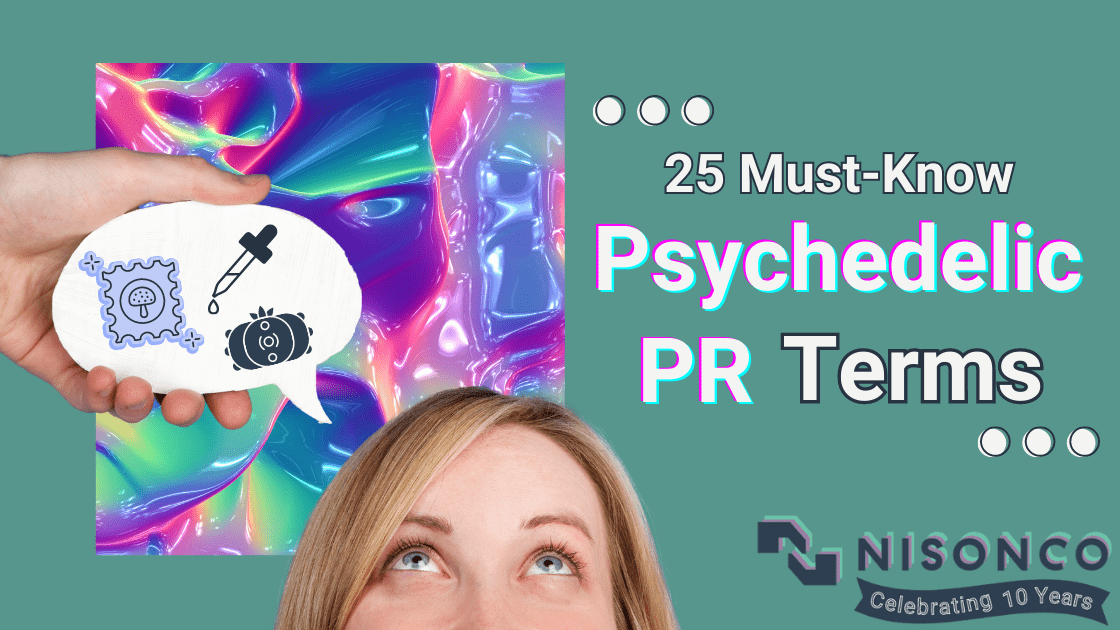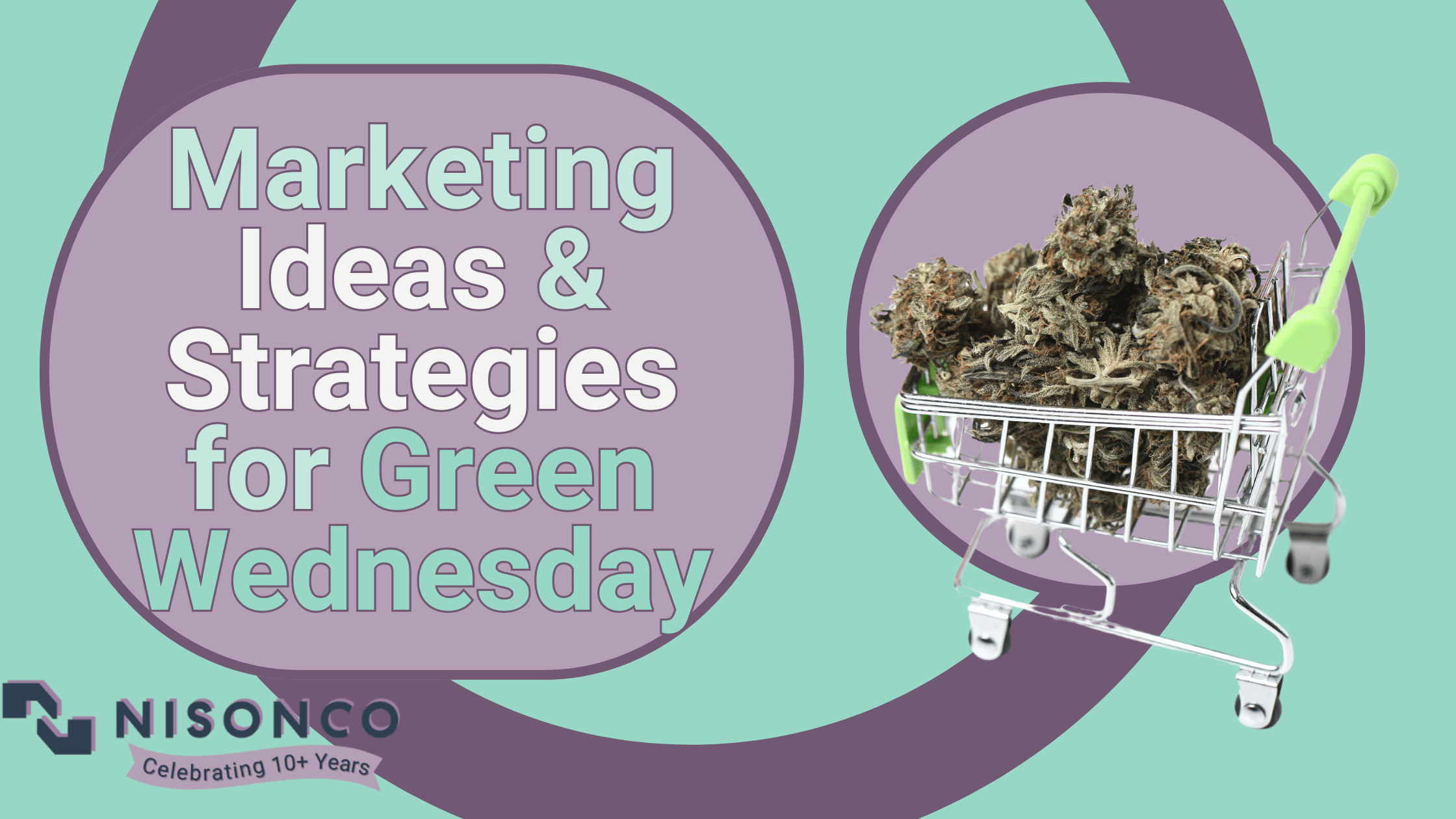Brian Fitzpatrick, Chairman and CEO of Qredible®, is no stranger to creating innovative software companies. The New Jersey native has used a tried-and-true method of marketplace research and assessment, careful team building and visionary data collection methodology to ensure the success of his last three software enterprises. Now, Fitzpatrick has turned his gaze to an industry that desperately needs his help: the regulated cannabis, cannabinoid and hemp spaces.
Last month the Managing Editor of NisonCo PR, Marissa Smith, had the opportunity to speak with Fitzpatrick at the world’s largest cannabis conference, MJBizCon. Fitzpatrick explained how the potent combination of blockchain enforcement, compliance technology and a registry network will bring trust and transparency to an unpredictable cannabis marketplace.
Marissa Smith: You said Qredible has been in direct development for about three years. What did that timeline look like, and where are you now in the total arc?
Brian Fitzpatrick: Where we’re at now is essentially just launching. So, we’ve got some big manufacturers and distributors that are joining in, and we’ve got some good verbal commitments from some very large, well-known cannabis brands, and that’s really cool. The brands that want to differentiate by showing true transparency and building trust are exactly what we are going for.
Ideally, we’re also talking to the states. [One day] the State Department of Agriculture or State Cannabis Commission will require you to register on Qredible — that’s where we want to be. We’re talking to a couple of states right now, and of course, there is a process to do that to get to the right people. We’re looking at New Jersey, which is one of the reasons I’m moving the company to New Jersey. First, it’s my home state; secondly, they’re very early in their entire [cannabis regulation] process. They’re really trying to do things properly and right because Governor Murphy wants to learn from the mistakes of other states and ensure their launch goes well. Qredible is all about compliance and safety and so tied into the rules and regulations, and we want to provide advanced tools to enable operators to comply with those regulations at a fraction of the cost of traditional means.
Quite frankly, I haven’t really figured out if we’ll even charge the states because I want to help bring the cost of compliance down for all parties, including the state. I want to be able to say to them, “I’ll give it to you for free; I’ll give you all the data, all the analytics. I’ll give you a secure repository to onboard these companies, and you can monitor for free.” I want to provide significant value to the companies in this industry by reducing their risk and assisting in growing their brands for a reasonable subscription fee. I prefer not to take money from taxpayers and consumers. If we’re not charging the consumer for trust and transparency, why would we charge the state that’s trying to protect the taxpayers? I really do believe we are called as a company to do the right thing for the end consumer because they’re the ones that are the end consumer of these products; they’re the ones that need to get what they’re promised and what they pay for, and they need to know what they’re putting in their bodies.
Marissa: And customers clearly want transparency. We’re seeing many more people asking tough questions like, “Where do you really produce every component?” They want to know those things.
Brian: Absolutely. And you know what? Consumers are so uneducated about the nutraceutical market, hemp, CBD and marijuana — the hemp and cannabis markets are essentially brand new! So people don’t know the questions to ask. One of the things we’ll be doing in our consumer release is educating them on the Certificate of Analysis (COA). What is a COA? How do you read a COA? What are the things you need to look for? We will be educating them on the entire market and giving them the ability to understand whether these companies are doing what they say they’re going to do. That’s very important, particularly in the consumer market.
So, that’s going to drive what I call the bottom-up adoption. The bottom-up adoption will help drive the impetus for businesses to become credible with Qredible. That Q with the checkmark — The Q verified seal — has to become what people are looking for.
Marissa: How did the idea for incorporating reviews and commentary on the Q-Trust platform come to be?
Brian: I remember going on GlassDoor and then going to my HR person and saying, “There’s a bad review on our company from an ex-employee!” She said, “Brian, that’s going to happen.” I said, “I know, but I want to be part of the dialogue. So please get in there, register for [GlassDoor], and comment back.” If you look at my last company’s GlassDoor reviews, HR was always going in there saying, “Thank you for your feedback,” — it was always very professionally done — “This is what our policy is about this…” And that’s what we are all about. It was important for us to hear what employees or former employees had to say, and it was important for us to be part of that dialogue.
It is vital to note that Qredible is collecting reviews on sites such as the Better Business Bureau and Google, but we are not soliciting customer comments. We may collect them by asking, “Tell us what you know about this brand,” but we do not post these comments. We use this to further our research on these companies. We don’t want competitors barraging our platform with phony reviews — that is not credible, nor will it be in Qredible!
Marissa: How does Qredible put blockchain technology to use in the cannabis industry?
Brian: I have to tell you, blockchain is a great technology, and I’ve been studying it and dealing with it for numerous years, including at my last company. It is as much a marketing discussion about blockchain as it is about technology. If you can say, “We’re using blockchain for security, for immutability,” people perk up. They say, “Oh, that really makes sense.” The technology is certainly amazingly secure, which is why we use it!
In the crypto world, they primarily use the consumer version of the blockchain called Ethereum. We’re using the B2B version, IBM’s Hyperledger Fabric blockchain. It is a good application for [the cannabis supply chain] because it allows us to secure these documents and certifications, which is the big thing everyone is concerned about: Are they telling the truth? Well, not only are they telling the truth, we validated and verified it — gave it a Smart Contract ID and wrote it into the ledger. It’s immutable; it’s secure. That’s what blockchain really gives us the ability to do.
The current way the industry handles lab reports does not use blockchain. If people care about immutable data, it is the only real solution to ensure secure verification and validation.
In my previous industry, a big problem was the falsification of bank statements. In mortgage finance, if you needed to have $20,000 in earnest funds in a bank account, the loan officers were looking at a bank statement with only $2,000 in it, falsifying the bank statement, and we would get a fraudulent bank statement. If you looked at them side-by-side, you couldn’t tell. How did we fix that problem? We went straight to the bank, electronically got their balance, and did away with the paper. Then, we created a locked-down digital statement through blockchain. So, I’ve taken these same concepts in financial regulatory tech and created certainty and security. That’s where Rick [McDonald] and I came from — He was one of my largest clients at my last company. He was committed to making sure they had the right technology, and we were committed to giving it to them. When we looked at the cannabis industry, we said, “Wow, this industry needs what we provided for our last industry.”
Marissa: Do you think beginning a company like Qredible is beneficial at this time because cannabis regulations are minimal compared to industries like finance?
Brian: I can tell you in my last industry, things got really ugly in 2008. That’s when the mortgage industry essentially brought down the entire financial markets. It was all based on greed, fraudulence, and lots of bad stuff that was going on. Right before the crisis — before the adults stepped into the room and the regulatory pendulum swung all the way the other way — I had CEOs at companies say, “Well, I don’t want to know what’s going on because if you tell me, I have to do something about it.” So I said, “OK, so why don’t I just give the technology to your customers, and I’ll tell them where you’re violating the law? Would you be OK with that?” And they’re like, “Oh no, you can’t do that.” And I say, “Look, one day, the regulators will come in here, and they’re going to hold you accountable for this stuff.” And they said, “Well, it’s cheaper for me to play the odds on it.” That was the attitude of the industry! So, we got there before [the regulatory restructure] and put guardrails up. What happened is the good companies jumped on. They said, “Look, we’re not waiting for the regulators to tell us what to do. We’ll listen to what they say at present, but we’ll go beyond it.” Then everyone started signing on when the fines, fees, penalties and class action lawsuits started to multiply in droves. The good news about that industry is that no one ever got sick or died from a bad mortgage. If health and safety regulatory guidelines are discarded in this industry, the consequences are much more severe!
What we’re concerned about are the rascals. Who are the rascals? The rascals are the people that do not want to be found out, like those earlier mortgage bank CEOs that I mentioned that did not want to do anything about quality and compliance. They’re not telling the truth, so they don’t want to cooperate. However, just as in Canada when national legalization rolled out, those companies will be history!
Marissa: Tell me more about the subscription model. What does that look like? What are the options?
Brian: So basically, it’s a very affordable model. Let’s take a manufacturer or distributor. A manufacturer or distributor will pay us a base fee that could be as low as $249/month, depending on the company, and for their customers to be monitored, they will pay us $149/month. They’ll introduce us to their customers, and the initial base is free. However, suppose they want to see and respond to customer reviews or any negative public records and benefit from the Qredible seal and compliance protection. In that case, they have to pay the $149.
Let’s say there’s a large cannabis company. They’ll pay an initial fee for monitoring their core company, and then each dispensary will pay a small monthly fee. It’s basically a monthly subscription based on the number of locations that we’re monitoring and giving the seal to for display in those locations.
It’s really not very expensive — take a trucking company that just wants to validate they’re DEA-certified and have the proper licensing: For them, it’s $249/month, and we send them leads through our platform so they can grow their business. If someone wants a qualified trucking business, we send them that lead. It’s cheaper than a billboard! Then, to the consumer, it’s going to be free.
It is important to state — and I emphasize this — Qredible is NOT a marketplace. Correspondingly, we do NOT make money when a company sells products. We believe collecting a commerce fee is a conflict of interest and does not support our vision and mission of making the industry safer.
Marissa: Do you have the ability to monetize the data beyond subscriptions?
Brian: I’m always telling the team about data monetization. The only way you can monetize data and look at what I call data derivatives is once you have data. So, we are amassing this data, and we have the ability to sell and utilize this data at the aggregate level in our contracts. So, in other words, I’m not going to sell customers’ data that indicates, “This is how much in sales this company has done,” as that is a violation of their private information. We are interested in aggregated data for trending and benchmark analysis at an aggregate level.
So will we monetize this someday? The answer is yes: we want to create benchmark indexes. Some of that we’ll use to monetize; some of that we’ll simply use to increase the value to our subscribers. When processing millions of data points, looking at the empirical data and having enough data to be statistically significant means you open the door to many creative possibilities, including advancing industry knowledge and education from a research-backed perspective.






